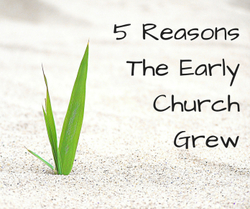
I was the director of Campus Target, a missions organization that I started in my early twenties with my best friend Toby and a bunch of other incredible people. It was the job of my dreams. I got to travel the world. I got to speak on big stages to thousands of people. I got to meet students individually in dimly lit restaurants. My goal was to inspire people to live selflessly and to take giant leaps of faith. My invitation was always the same: Would you give one year of your life to China? Would you press “pause” on your personal ambitions and come with me? We’ll share our faith with college kids who have been institutionally stifled from looking for God.
It was a pretty romantic job to lose. And I lost it because of sex addiction. No matter how hard I tried (and I tried very hard) I could not stop acting out- usually online but occasionally at strip clubs or massage parlors. It didn’t matter how much I confessed. I told pastors, therapists, friends and family members. I prayed. I made vows. I asked God to fix me. I took a year off of ministry to get help.
I always believed that breakthrough was just over the horizon and that the solution was rooted in my desire to change. I thought that I just had to want it bad enough. That my repeated failure was evidence that maybe I liked evil more than I loved God.
It was agony. I remember waking up so many mornings in a fog. Even the morning sunlight felt like it was only there to illuminate a deeper darkness. The shame was so heavy you could almost see it suspended in the dust particles in the air. I couldn’t hold up my face on mornings like that. I knew my life was at full count- one more strike and I might be out of a job, a marriage, a fellowship of believers. You’d think that might be enough to convince me that I couldn’t fix myself. It wasn’t. Even a five year cascade of consequences wasn’t enough. That’s what I’m trying to tell you: It’s very hard to see a truth that you don’t want to see. And I did not want to see that I was a hopeless case.
If I wanted to I could have seen it on the night before Thanksgiving, 2009. There was a Skype call. Dani and I were living in China at the time. Two squished faces on our computer screen (leaders of our sending organization) said the gig was up, that I needed to come home. I tried to talk them out of it. “Let me finish the school year,” I said. In retrospect that was only further proof of my delusional thinking. (When you’re really screwed up you kind of know it but you also think that maybe you’re OK.)
Anyway, we flew home. My ministry credentials were suspended, my job was appropriated to my best friend Toby (who was always the better man for the job if you want to know the truth) and I entered recovery. But I was angry. Why didn’t God fix me when when I was trying so hard to serve him? And why did I have to lose everything? And why was there so much disappointment in everybody’s eyes? I globalized the whole thing; I figured that if somebody as awesome as I was could get screwed up like this that maybe it was the fault of Christianity proper, that maybe the whole religion was teaching folks an untenable way of life.
This was just another way of fighting against the fact that I had a problem I couldn’t fix. But I still wasn’t ready for the truth. I was stuck on the idea that it wasn’t my fault alone. That if it could happen to me there must be a flaw in the matrix.
As a result of that conviction I forced Dani and myself through an awful season of indigence and hopelessness. I went to a bunch of meetings and therapy sessions but while I dried out from the sexual aspect of my addictive behavior I resisted any internal change. It was the worst year of my life. I lost friends who I’ve never recovered. I sunk into a deep depression. I humiliated myself and my family by hosting a multi-month temper-tantrum on my blog. And poor Dani. She stuck around, waiting, watching, hoping that I’d finally get off the couch and reenter the world. Thank God her family was nearby. There were so many nights when she would invite me to come eat dinner at their house and I would grab a beer bottle instead and say: “No thanks Sweetie, you go. Have fun. Take your time.”
I grabbed more and more beer bottles. I told myself it was only right, especially now that I was no longer oppressed by those old religious values that screwed me up to begin with. And besides, I could keep count of the bottles. I could make sure there were never too many empty ones. One trick I learned was to buy very large cans with very high alcohol-by-volume percentages. It never occurred to me that this was not normal behavior. I freely announced that as a “former addict” I ought to pay attention to my drinking but I left it at that.
About once a year I would do something dangerous with alcohol- like drink until I blacked out. Once I fell through a wall, once through a window. Still I chose to believe that those were aberrations and not a pattern. But year by year the stories began to add up. Several times I got in a car with a buzzed friend or drove under the influence myself.
Driving under the influence is the part I’m most ashamed of, the greatest evidence that I’d stopped being me, that my life was out of my hands. Before we got married Dani and her sister Kelly were hit head on by a drunk driver. Kelly was killed in the accident and Dani almost died too. I witnessed the devastation and I vowed to never drink again. But now I was drinking several times a week, usually at home or at a bar that I could walk to. But sometimes I drove to meet a buddy for beers and Dani would carry the silent dread that maybe this time I’d have more than my two beer limit. And usually I did, but I’d subtract it by the number of hours I was out, or by the fraction of liquid left in the glass.
It wasn’t until January 24, 2015 when I woke up to the truth that God must have been trying to teach me all along. Dani was seven months pregnant. We were one week away from switching apartments, cardboard boxes were strewn everywhere. On the 23rd we’d had a small tiff about money. I don’t remember what the problem was. I do remember that the next day, without warning, I bought alcohol, smuggled it into a movie theater, and drank until the idea of going to strip club sounded entirely innocent. So I drove to one, and then to another, and then I drove over a curb on the way to a third. My tire popped and I rolled for two miles on the metal wheel before ditching my car in a mechanic’s parking lot. I walked to a hotel, passed out, and woke up at 5am in disbelief. I called Dani and told her the whole disgusting story. I’ll never forget her sobs crackling through the receiver. She picked me up at the hotel. I was still woozy but everything came into focus when I sat down in the passenger seat. She was wearing a sweater stretched tight around her perfectly round, perfectly adorable belly. I couldn’t stop looking down, couldn’t stop drawing contrasts between her and me- how faithfully she was carrying my baby with her own weary body while I had been out looking at other bodies, how diligently she had been working to grow new life while I had been recklessly risking lives behind the wheel.
I don’t know if anything could have betrayed her more than what I did. My cockeyed car was undeniable evidence. I was no different from the man behind bars.
There aren’t words to describe the demoralization when you get that low. All I know is that in that moment I was given a glimpse of the future. That somehow I knew for sure that nothing was ever going to change. That my baby would be born and that life would go on and that every so often I would do something so terrible, so profoundly dangerous or immoral that I would jeopardize my safety and the safety of my family until Dani would have to leave me, would have to take my son away, and that the wife who I love more than life itself would be alone, that my boy would grow up fatherless, or worse- with me so eaten up and absent that he comes to believe his own worth is staring back at him in my sunken eyes.
That was my last drink. Tomorrow is my one year anniversary.
But listen. I didn’t actually start to change internally until I sought help without any caveats.
I’ve always had caveats. I’ve always thought of myself as a part time addict who needed part time help. Even when I lost Campus Target, even when I entered recovery, I was still full of self-righteous, self-justifying, indignation. I thought, “Sure, I need help, but I don’t need ALL the help, just some of it. And I’ll be the judge of what kind and how much I need, and of what’s reasonable and what’s unreasonable, and of who else is at fault here.”
I didn’t realize that was part of my disease. And I didn’t realize that my disease was fundamentally a spiritual disease- that I wanted control. That I didn’t want to need anybody or anything, didn’t want to be flawed or weak or worthless or inadequate or unloveable. That I wanted to be God, basically- to command that emptiness away.
How would I ever have discovered that? I might have spent my whole life losing everything, shouting angrily that the world was all wrong. It would have been a long slow death if reality didn’t hurt bad enough for me to let the truth in. But it finally found me in the car that hungover morning:
“I’m out of control.” I said. “I need help. I can’t fix myself alone.” Everything changed after that. I started taking suggestions. I started doing uncomfortable things. I’ve been letting go of my own will and I’ve been trusting for the first time since I was a teenager. It’s like this cloud is lifting off my brain. It’s like I’m connected to God again. I wish you could feel it because I know you’d feel the difference and I think you might relate.
That’s why I’m telling you this story. I’m wondering if you can see yourself in it somehow. I’m wondering if maybe you’ve been avoiding some truth about yourself and God like I was.
I know how easy it is to shrug off the evidence. To justify. To believe your own bullshit. And if you’re anything like me… if you’re proud, afraid, angry, insecure; if you’re guarded, if you’re trying to defend yourself, if you’re fixated on the wrongs done to you… I just want to say from one sick person to another, you’re not alone. And you don’t have to feel this way again. It can get better if you’re ready.
If any of this resonates for you please reach out. Every moment is an opportunity for everything to change. And maybe this is your moment. It could be. I believe that God loves you and is willing to intervene as soon as you’re ready. You don’t even have to believe what I believe though. As long as you admit you need help, and as long as you’re willing to take whatever help you can get, your posture has changed and your feet can finally move forward.
This post was written by Matthew Drake. You can find his original post here: http://christianityfortherestofus.com/2016/01/24/powerlessness-or-my-last-drunk/









 RSS Feed
RSS Feed